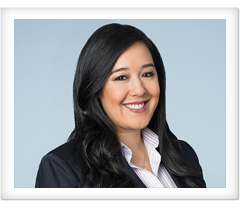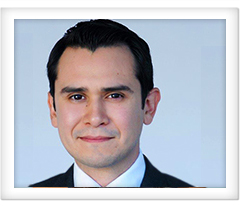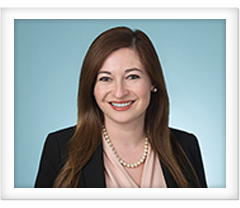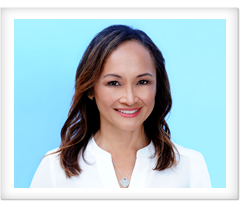| |
 Alerts & Advisories Alerts & Advisories
 Industry Reports & Newsletters Industry Reports & Newsletters
 Published Articles Published Articles
 Social Media & Blogs Social Media & Blogs
 Brochures Brochures

|
 |
TCPA & Consumer Calling
Monthly TCPA Digest
July 2018
By Joshua Briones, Russell Fox, Alex Hecht, Radhika Bhat, Anne-Marie Dao,
Elana R. Safner, Jennifer L. Kelly, E. Crystal Lopez, Esteban Morales,
Nicole Ozeran,
Natalie A. Prescott, and Grace Rosales
We are pleased to present our July edition of the Monthly TCPA Digest, providing insights and news related to the Telephone Consumer Protection Act (TCPA).
This issue includes an update on activity at the FCC, specifically the agency’s progress in evaluating comments received in several ongoing TCPA proceedings. In addition, in our Class Action Update, we look at the current understanding of what constitutes an ATDS and why, in the wake of ACA International, it may be more difficult for plaintiffs to demonstrate that the companies they are suing used ATDS devices.
If you have suggestions for topics you’d like us to feature in this newsletter, or any questions about the content in this issue, please feel free to reach out to an attorney on Mintz Levin’s TCPA and Consumer Calling Practice Team. You can click here to subscribe to the Monthly TCPA Digest.

By Russell H. Fox, Radhika Bhat and Elana R. Safner
The Federal Communications Commission (“FCC” or “Commission”) is busy evaluating scores of comments and reply comments it received in several ongoing TCPA proceedings in the past month. First is the Public Notice, covered in the June TCPA Digest, in which the FCC sought comment on several central TCPA elements in light of the DC Circuit’s decision in ACA International v. FCC. The Commission received over 100 substantive comments and reply comments. Industry stakeholders generally supported interpretations that would limit the TCPA’s reach, such as narrowing the definition of an “automatic telephone dialing system.” They hoped such reforms would reduce the number of class action lawsuits brought against companies attempting to make legitimate business calls. Commenters included stakeholders from the financial, retail, automotive, health care, restaurant, insurance, and news industries, reflecting the broad reach of the TCPA. Consumer advocates and individual commenters, on the other hand, urged the FCC not to relax TCPA protections, and said that doing so would leave consumers vulnerable to even more unwanted robocalls. The Commission also received more than 300,000 “express” comments, mostly in support of “the strongest possible consumer protections against unwanted robocalls.”
Second, the FCC is evaluating comments and reply comments on a Second Further Notice of Proposed Rulemaking seeking input on the adoption of a reassigned numbers database. Note that in ACA International v. FCC, the D.C. Circuit struck down the portion of the FCC’s 2015 Order that granted only a one-call safe harbor for calls to reassigned numbers, finding it arbitrary and capricious — however, the D.C. Circuit stated that the existence of a reassigned numbers database would bear on the reasonableness of calling reassigned numbers. Many industry commenters favored the creation of a reassigned numbers database accompanied by a safe harbor from liability for businesses that check their marketing lists against it. Some industry commenters, however, were less enthusiastic, expressing concerns about the costs to create and maintain such a database, and arguing that even an optional database could create a de facto standard for reassigned numbers liability. Commenters also suggested that the effort to create a reassigned numbers database should move forward in parallel with, and not to the exclusion of, the Commission’s broader TCPA reform efforts examined in the proceeding above.
Finally, the Commission is evaluating comments on a Public Notice regarding the Petition for Declaratory Ruling filed by Insights Association, Inc. and the American Association for Public Opinion Research last year. Petitioners asked the Commission to clarify several areas under the TCPA, including that “communications are not presumptively ‘advertisements’ or ‘telemarketing’ under the TCPA simply because they are sent by a for-profit company, or might be for an ultimate purpose of improving sales or customer relations.” The petition also sought clarification on dual-purpose communications and survey, opinion, and market research studies. Less than a dozen substantive comments and reply comments were filed on this petition.
Several comment periods are also currently open on Public Notices concerning various TCPA issues. On June 14, the Commission released a Public Notice seeking comment on a petition for retroactive waiver and request for expedited ruling filed by ViSalus, Inc. ViSalus asks the Commission to grant it a retroactive waiver of the Commission’s prior express written consent requirement for automated telemarketing calls similar to the waivers previously granted to the Direct Marketing Association and Coalition of Mobile Engagement Providers in the 2015 FCC Order. The comment and reply comment deadlines are July 16 and July 30 respectively. Lastly, on July 6, the Commission released a Public Notice seeking comment on a petition for clarification and declaratory ruling filed by the Life Insurance Direct Marketing Association et al. This petition seeks a ruling that “life insurance agents and brokers (collectively, ‘servicing agents’) are permitted to call their customers while the life insurance policies sold by servicing agents are in effect and for a period of 18 months after the policies expire based on an ‘established business relationship’ (‘EBR’) between life insurance servicing agents and their customers.” Comments are due on August 6, with reply comments due on August 21.
Return to top

By Anne-Marie Dao
After the U.S. Court of Appeals for the District of Columbia released its highly anticipated decision in ACA International v. Federal Communications Commission, courts have been addressing issues raised in that case. We previously summarized the opinion — which raises four issues, one of which is what constitutes an Automatic Telephone Dialing System (“ATDS”) — here.
The statute defines an ATDS as “equipment which has the capacity — (A) to store or produce telephone numbers to be called, using a random or sequential number generator; and (B) to dial such numbers.”[1] This can be a critical threshold question in TCPA class actions — did the company being sued use an ATDS? Importantly, the U.S. Court of Appeals for the Second Circuit recently narrowed the definition of what type of equipment constitutes an ATDS.
In King v. Time Warner Cable Inc.,[2] the Court of Appeals for the Second Circuit vacated and remanded the district court’s decision to grant partial summary judgment in favor of plaintiff Araceli King for her claim that Time Warner Cable violated the TCPA by using an ATDS to call her phone without her consent. The Second Circuit remanded the case for further proceedings since the district court’s analysis was based on an incorrect interpretation of the statutory text.[3] The district court previously held that the equipment used by Time Warner Cable (an “interactive voice response” calling system) qualified as an ATDS. The system works in the following way:
[It] automatically references Time Warner’s billing records to determine which customers are more than 30 days late on their payments, and then dials the number associated with those accounts. If a person answers the call, the system is programmed not to call that number again until the following day (and it will stop altogether if the customer’s account becomes current). If the call is not answered, the system is programmed to leave a voicemail and attempt to call back two more times that day.[4]
Significantly, while the equipment can store numbers, Time Warner asserted that it does not have the capacity to make random or sequentially generated calls.[5] After the district court granted partial summary judgment in favor of the plaintiff, ACA International was decided, which paved the way for the Second Circuit to consider the district court’s reliance on the FCC’s 2015 Order, which “broadly construed the term ‘capacity’ and thus extended the TCPA to reach any device that could be modified by software changes to perform the functions of an autodialer.”[6]
The Second Circuit analyzed the plain meaning of “capacity” and stated that “[c]ommon sense suggests that legislation, which typically targets present social problems, would be aimed at devices that have the “capacity,” in that narrower sense, to cause the problem that is the subject of legislative concern, rather than addressing itself to the hazily defined universe of things that have only a theoretical potential to do so.”[7] The Second Circuit added that it was inclined to adopt a narrower definition of capacity than that which the FCC endorsed in its 2015 Order.[8]
Following the D.C. Circuit’s reasoning, the Second Circuit concluded:
[w]e view the D.C. Circuit’s discussion as correctly drawing a distinction between a device that currently has features that enable it to perform the functions of an autodialer — whether or not those features are actually in use during the offending call — and a device that can perform those functions only if additional features are added. We find that distinction persuasive; accordingly, we would conclude that the former category of devices falls within the definition of an ATDS, and the latter does not.[9]
At least in the Second Circuit, the type of equipment that falls within the ambit of the TCPA’s definition of an ATDS has narrowed, and plaintiffs will have a more difficult time overcoming that first hurdle in TCPA litigation — showing that the company they are suing used an ATDS.

Endnotes
1 47 U.S. Code § 227 (a).
2 King v. Time Warner Cable Inc., No. 15-2474-cv, 2018 U.S. App. LEXIS 17880, at *1 (2d Cir. June 29, 2018).
3 Id. at *2.
4 Id. at *5.
5 Id. at *5-*6.
6 Id. at *9.
7 Id. at *11.
8 Id. at *12.
9 Id. at *14-*15.
Return to top

In an economy where timely and effective communication with both current and prospective customers is vital to the success of nearly every business, modern technology, such as autodialers, recorded and artificial voice messages, text messaging, and e-mail provide companies the ability to reach large numbers of people with increasingly smaller up-front costs. But, companies cannot afford to overlook the hidden costs of using these mass communication methods if the many regulations that govern their use are not carefully followed.
Companies have been hit with class action lawsuits under the Telephone Consumer Protection Act (TCPA) for tens or even hundreds of millions of dollars. Mintz Levin's multidisciplinary team work tirelessly to help our clients understand the ever-changing legal landscape and to develop workable and successful solutions. TCPA rules can apply to certain non-sales calls, such as a recorded call to employees about a new work schedule or a text to customers about a new billing system. We advise on how to set up calling campaigns that meet state and federal requirements as well as how the Federal Communications Commission and the Federal Trade Commission apply their rules on calling, faxing, and texting. Given the uncertainties surrounding the TCPA as a result of the FCC's extensive and confusing rulings, we work with clients across many industries, health care, retail, communications and financial services, on matters relating to the following issues:
Compliance: Our TCPA team routinely advises companies on compliance with federal and state sales and marketing requirements. We also know what type of consumer consent is needed for each type of call and how specific consents must be worded. We know when and how to apply a do-not-call list and when and how an opt-out provision must be afforded.
Consumer class action defense: We've been called upon to handle TCPA class actions across all industries and in federal courts across the nation. Our seasoned litigators know the serial plaintiffs and counsel well and are unfazed by their schemes. Fortunately for our clients, our team has succeeded in winning at the motion stage or earlier in the vast majority of TCPA matters we have defended. That is what truly sets us apart. And if a case must go to trial, we have the experience and strength to follow it to the end.
Insurance coverage disputes: We know the arguments insurers use to deny coverage in TCPA suits because we've defended against them. More important, we have a long track record of convincing carriers to fund the defense of these actions and, in some cases, to pay significant portions of settlements. Our goal is to help secure insurance protection and to see to it that carriers make good on their coverage obligations when a claim arises.
|
|

Related Practices

Related Industries

Joshua Briones, Member

Russell Fox, Member

Alexander Hecht, ML Strategies - Vice President of Government Relations

Jennifer Kelly, Member

Radhika Bhat, Associate

Anne-Marie Dao, Associate

E. Crystal Lopez, Associate

Esteban Morales, Associate

Nicole Ozeran, Associate

Natalie A. Prescott, Associate

Elana R. Safner, Associate

Grace Rosales, Senior Business Development Specialist

ML Strategies
|
|